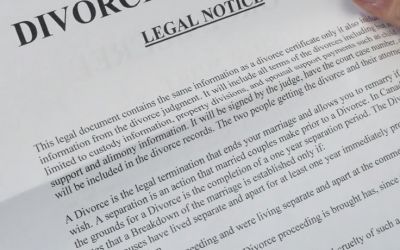Court Marriage for Muslims + Non-Muslim Couples: Rules & Options in 2025
Table of Contents ▼
Can Muslims marry non-Muslims in civil court? The answer may surprise you — here’s everything you need to know about court marriage for Muslims with non-Muslim partners.
When a Muslim and a non-Muslim decide to marry, they often face numerous questions and challenges regarding their legal and religious options. One of the most common questions that arise is, “Can we get married in civil court?” The answer, although nuanced, is generally yes. Many jurisdictions allow Muslim and non-Muslim couples to marry through civil processes.
However, this option is not universal and depends on factors such as nationality, residency, and the specific laws in place in the jurisdiction where the marriage is taking place. In this blog, we break down the various considerations and options available for Muslim and non-Muslim couples looking to marry through civil procedures in 2025.
Understanding Court Marriage for Muslims
A court marriage, also known as civil marriage, is a legal contract that recognizes the union between two individuals under state law rather than religious law. For Muslim and non-Muslim couples, court marriage provides a pathway to legally formalize their union, especially when religious marriages may present obstacles due to differing faiths.
This distinction is crucial. While religious marriages follow theological guidelines specific to the faith, court marriages adhere to the legal codes of the jurisdiction, creating opportunities for interfaith couples who might otherwise face difficulties in securing religious recognition.
Legal Frameworks Across Different Jurisdictions
The legality of court marriage for Muslims and non-Muslim couples varies greatly across the world. Some countries have adapted their marriage laws to accommodate interfaith marriages, while others impose significant restrictions.
Recent changes in places like the UAE have brought about sweeping reforms. Historically, marriages involving Muslims were governed under Sharia law, which posed challenges for interfaith unions. However, new civil family law provisions have been introduced, allowing non-Muslim foreigners and residents in the UAE to marry under civil codes instead of religious law. These reforms open doors for couples who previously faced legal obstacles due to religious differences.
Despite these changes, the specifics still depend on factors like the couple’s documentation, residency status, and the legal requirements in the jurisdiction. It’s essential to stay informed about the latest legal developments to make sure both the religious and legal aspects of the marriage are adequately addressed.
Religious Considerations vs. Legal Realities
While court marriage for Muslims is becoming more accessible, it is important to note that traditional Islamic jurisprudence holds specific views on interfaith marriages. These guidelines can vary between schools of Islamic thought, but some general principles are widely followed:
- Muslim men are permitted to marry women from Abrahamic faiths (Christians and Jews, often referred to as “People of the Book”).
- Muslim women, however, traditionally face stricter guidelines, often being expected to marry Muslim men.
These religious principles don’t necessarily restrict civil marriages, but they do guide how Muslims view interfaith unions. Civil marriage offers a practical solution to couples whose faiths diverge but who still wish to marry legally.
Practical Considerations for Muslim + Non-Muslim Civil Marriages
Couples wishing to marry through court marriage for Muslims should consider several important practical aspects beyond the ceremony itself. Here are some key points:
Documentation Requirements
For a civil marriage, certain documents are typically required, including:
- Valid passports and national IDs
- Birth certificates (often apostilled or legalized)
- Certificates of no impediment or proof of single status
- Divorce decrees if applicable
- Translations of documents if not in the local language
Inadequate documentation can delay or even prevent marriage, so it is essential to work with a consultant who understands the specific requirements of the jurisdiction where the marriage is taking place.
Legal Implications
Court marriages for Muslims have various legal implications that couples should be aware of, such as:
- Property ownership and inheritance laws
- Child custody considerations
- Divorce procedures and the rights involved
- Tax implications, particularly when dealing with multiple jurisdictions
To avoid surprises, many couples seek legal advice both from professionals in the country of marriage and their country of residence to fully understand the impact of their civil union.
Planning Timeline for Civil Muslim Marriage
Couples planning a civil marriage abroad should start early to ensure they have enough time to meet all legal and documentation requirements. Here’s a recommended timeline:
- 3-6 Months Before: Begin researching the best options and collecting essential documentation.
- 2-3 Months Before: Select the jurisdiction and begin the process of document authentication.
- 1-2 Months Before: Submit your initial applications and start planning travel arrangements.
- 2-4 Weeks Before: Confirm that all requirements have been met with local authorities.
- Arrival: Arrive several days before the ceremony to resolve any last-minute issues.
Planning early reduces stress and ensures everything is in order before the big day.
FAQs
Will our court marriage be recognized when we return home?
Recognition of a court marriage for Muslims performed abroad varies by country. Most countries recognize legally performed marriages abroad, but some may require additional registration or not recognize marriages that contradict local laws.
Can we include religious elements in our civil ceremony?
While civil ceremonies have specific legal requirements, they often allow for personalized vows and symbolic acts. Many couples include religious or cultural elements in the post-ceremony celebration.
What if our families disapprove?
Family disapproval is a common challenge in interfaith marriages. Working with experienced consultants can help couples navigate family expectations and find solutions that honor both sides while allowing the couple to follow their hearts.
Conclusion
Court marriage for Muslims and non-Muslim couples offers a practical solution for couples committed to building their lives together. While navigating the complexities of legal systems and family expectations can be difficult, many couples successfully navigate these hurdles with the right guidance.
With careful planning and the help of experienced professionals, couples can focus on their future together and leave bureaucratic stress behind. If you’re planning your civil marriage, contact us today and let us help you make your wedding a reality.



